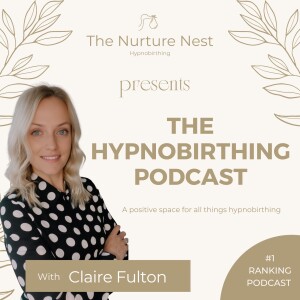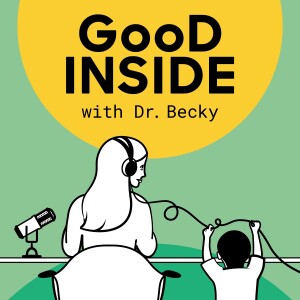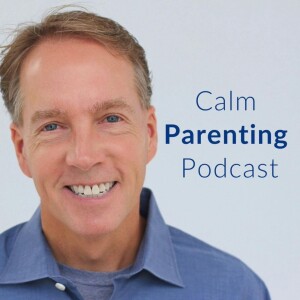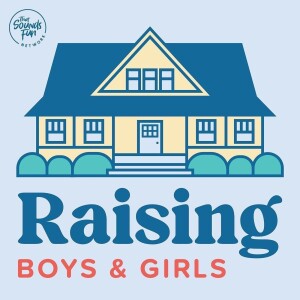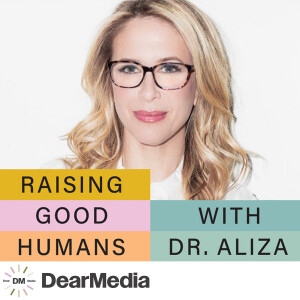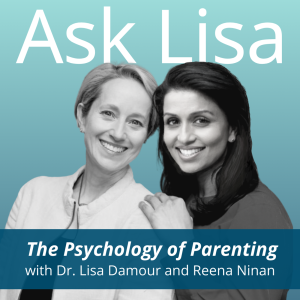

Foundation Father
https://api.substack.com/feed/podcast/1235769.rssEpisode List

The Best Books for Boys
Martin Cothran is provost at Memoria College, which offers a master of Arts degree in the great books. He is a cofounder of Memoria Press, which publishes a complete K-12 classical curriculum, and Highlands Latin School in Louisville, KY, and is the author of several popular textbooks, including Traditional Logic, Material Logic, and Classical Rhetoric programs. He has been a voice on education and other public policy issues as a senior policy analyst for The Family Foundation of Kentucky since 1992.And if that wasn’t enough, you can find his new project at Blood and Morality. This is a public episode. If you'd like to discuss this with other subscribers or get access to bonus episodes, visit www.foundationfather.com/subscribe

How Hollywood Tries to Corrupt Your Children, and How to Fight Back
Craig Dehut is a film school graduate and CEO of Appian Media. Appian Media has produced multiple documentary series filmed on location in Israel, Turkey, Egypt, and Jordan. All their content is available free to watch and serves as a valuable resource for families, teachers, and preachers seeking biblically accurate content with high production values.Craig and I talked about how Hollywood influences the culture, sometimes in subtle ways, and how families can fight back. Today, most people would agree when you say Hollywood is corrupting the culture. But this attitude is fairly recent. The mask has dropped. Hollywood’s agenda has become obvious.But they have had an agenda for a long, long time. Far longer than most people would like to admit.Hollywood's InfluenceThe American movie industry operated under the Hays Code, a moral code that governed what could be shown in films. Portrayals of the family, profanity, sex, violence, and more were all regulated.Eventually, a theater agreed to show a movie with profanity. And nothing bad happened. No mechanism exists to actually enforce the code.Explicit portrayals of evil, sex, violence, and more aren’t the only ways movies can negatively affect viewers. More skilled filmmakers know how to get people to feel a certain way. Audiences might reject something if stated outright, but gradually accept the same idea if it is skillfully embedded in a story.Some examples:* Creating morally gray protagonists so viewers justify questionable actions* Using visual techniques like color to evoke specific emotions without viewers realizing what’s happening* Employing camera angles, music, and editing to manipulate audience feelingsHow Families Can Respond* Acknowledge the influence: Recognize that media does affect you and your children.* Research before watching: Use resources like Common Sense Media and Kids in Mind to evaluate content before viewing. Don’t trust their overall judgement. Really dig into the details, because they’re threshold of appropriateness is probably different than your own. Do not trust by default.* Consider filtering services: Platforms like VidAngel and Clearplay can help filter objectionable content from films. Take sovereignty over your entertainment choices.* Create better alternatives: Instead of just criticizing, learn the skills to create high-quality media that communicates biblical truth. Check out resources like Tomorrow’s Filmmakers.* Engage critically: Have conversations with your children about the messages in media, asking what lessons they learned and discussing the worldview being presented.* Ask the right questions: Instead of just asking "Is there anything bad in this?", ask "Is there something good, noble, trustworthy and praiseworthy in this content?" (referencing Philippians 4:8)We also make some recommendations on what media to watch. Take this seriously. You wouldn’t just grab random things from the grocery store to stuff into your mouth. Treat your media consumption with the same gravity. Stories feed your soul. Don’t force-feed it poison or junk food.If you want access to a full library of wholesome family content, check out Sherwood Kids. Audio-first entertainment that you’ll never feel guilty about. Help your kids build healthy digital habits while building their imagination. Try it free for 7 days. (Note: I’m an affiliate for Sherwood.) Use code “franklin” during checkout to get 10% off.This Substack is reader-supported. To receive new posts and support my work, consider becoming a free or paid subscriber. This is a public episode. If you'd like to discuss this with other subscribers or get access to bonus episodes, visit www.foundationfather.com/subscribe

Fatherhood as Your Children Age: From One to Twenty-One
Fatherhood always looks to the future. You have a goal in mind for your children, and as they grow and mature and differentiate themselves, your role changes with them. Once they leave the house, you can no longer ground them. You can’t control their movie choices.You must train them to live on their own. But you still have an important role.Scott Beyer has eight children, ranging in age from one to twenty-one. His oldest daughter is now married. He has children at almost every stage of life, and he has a lot of them. We focus a lot of time on the teenage years because that’s what people seem to have the most anxiety about. We cover:* The different stages of individuation. When they are born, they don’t think they are a different person from their mother. Of course, that changes.* Cultivating gratitude.* How a parent’s power shifts to influence, but only if you lay the proper foundation. Will they even want to listen to you when they are older?* The most important attributes to instill in your children before they are teenagers.* Being at peace when your children make different decisions than you would have. If you want them to be better people than you, you hope they make some better decisions anyway.You can find Scott on his Love Better podcast, which releases once per week. He also runs the website BibleGrad, a free website to learn the basics about the Bible.Foundation Father is a reader-supported publication. To receive new posts and support my work, consider becoming a free or paid subscriber. This is a public episode. If you'd like to discuss this with other subscribers or get access to bonus episodes, visit www.foundationfather.com/subscribe

How Stories and Entertainment Shape Our Children
This is a recorded X (formerly Twitter) Space with Harrison from Save Your Sons. Harrison has started to create wholesome entertainment for his own children, and we talked about his motivations and process.We also talked about the new streaming service called Sherwood Kids. Right now, you can get a free speaker with a yearly subscription. (I personally know the people involved and have an affiliate relationship with them.) Use the code “franklin” to get 10% off.Lifetime access to wholesome content, which will include classic cartoons like Mighty Mouse and Superman, along with a huge library of audiobooks.Some of the highlights from the episode:* We discount the role media plays in our reality. This is especially true for kids when their brains and personalities are malleable. What they watch, what they listen to, what they read will shape them for the rest of their lives. Media can give you a warped sense of what is healthy and what is good. Fathers are the first line of defense.* Media has always been bad in some way, but it’s gotten worse. Over-stimulation, quick cuts, no time to breath. A lot of times, it seems like its a drug meant to induce ADD. And that’s before we even get to the content. Hidden messaging. Propaganda. Nowadays, it’s not even subtext. They want to beat us over the head with their vision of the world.* The good things that media and entertainment can provide. The power of imagination. You have to be able to imagine a future and reverse engineer that future to start building it. Stories play an important role in this. You can’t just eliminate the bad. You have to provide something that is good.* When you start creating stories, focus on creating them for one person. C.S. Lewis did this with Chronicles of Narnia. He started writing the first one for his goddaughter. Create what your children will like and what you want them to consume. You’ll naturally fill a need for others as well. It will also come across as more personal and emotionally resonant.* It’s impossible to insulate kids from all entertainment. They will be exposed to something by friends or by grandparents or by a TV at a restaurant. Better to teach them discernment and train their filter. You can’t avoid the water. They have to be able to swim. Actively consume things with your kids and talk with them about it, especially at the end, but also in the middle. Pause it and ask questions.* Imitation is becoming. Kids need pictures of heroes to which they can aspire. They are begging for examples. They will latch on to good examples or bad examples. There is no neutrality. Parents are the main influence and example, but there has to be some standard outside of themselves that everyone is striving for.You can find Save Your Sons on X (formerly Twitter) and Instagram.His podcast for children, Froggy the Gator, can be found wherever you normally listen to podcasts. The most popular episodes are:* Froggy the Gator and the Lego Firetruck Rocket Ship Rescue* Froggy the Gator and the Superhero Surf Contest* Froggy the Gator and the Superhero ShowdownFoundation Father is a reader-supported publication. To receive new posts and support my work, consider becoming a free or paid subscriber. This is a public episode. If you'd like to discuss this with other subscribers or get access to bonus episodes, visit www.foundationfather.com/subscribe

How to Improve Your Reading Taste
This is a recorded Twitter Space with Jim Clair. Jim blogs at jimclair.com/ and has one of those rare newsletters that I look forward to and read all the way to the end. In this episode, we talk about:* Why do you want to improve your reading taste? Just like you don’t want to have a diet that consists mostly of candy, you want a better diet for your mind. Nothing wrong with candy, and we don’t want to look down on it, but if you want to improve your thinking, you must improve your reading habits. You are also forming the ceiling for your children’s reading habits. Books are almost magic. You can read the thoughts of someone 1000 years ago and dive into the * What is a good book that requires a better palette? Something that has shaped how generations have thought, that has had an impact, that has stood the test of time. We speak against the relativism of the modern day. Just because you don’t like something doesn’t mean it’s bad. Don’t let your terrible taste deprive you of something wonderful. There is some objectivity that we must submit to. Some books may be a slog, but that doesn’t mean it’s bad. It just means you have to develop your own cognitive endurance.* You don’t have to be intimidated by better books. A lot of the better books are accessible and readable. They didn’t have such a wide-ranging effect because they were obscure. Many were accessible to the common man. Some of Plato’s dialogues, for example, are easy to read and follow (though thinking through them is another matter). A good translation of The Odyssey is a page-turner.* How do you improve your taste? Like training a muscle, you want to ease into it. Don’t try squatting 500 lbs when you’ve never been inside a gym. It’s ok to do a few bodyweight squats. “Read what you love until you love to read.” We talk about some of the books that gradually led us to better tastes. Both of us read Calvin and Hobbes. One of our best pieces of advice when reading fiction: enjoy it. That should go without saying, but many people read only to glean lessons and treat the story as a husk to be discarded. C.S. Lewis recommends you read one old book for every two new books you read. Which old books do you read? Swim upstream. Who do you already like reading? What are their influences? What are you personally curious about? Don’t drink from the firehose too soon. Be patient. And be prepared to spend some money.Recommended reading from the podcast:* An Experiment in Criticism by C.S. Lewis* Reading Like a Writer by Francine Prose* Cannery Row by John Steinbeck* Basic Economics by Thomas Sowell* Meditations by Marcus Aurelius* Huckleberry Finn by Mark Twain* Tom Sawyer by Mark Twain* Old Man and the Sea by Ernest Hemingway* Washington by Ron Chernow* Some plays of Euripides* Pride and Prejudice by Jane Austen* Classical English Style by Ward Farnsworth* The Landmark Herodotus* The Landmark Thucydides* Rubicon by Tom Holland* Persian Fire by Tom Holland* Coolidge by Amity SchlaesFoundation Father is a reader-supported publication. To receive new posts and support my work, consider becoming a free or paid subscriber. This is a public episode. If you'd like to discuss this with other subscribers or get access to bonus episodes, visit www.foundationfather.com/subscribe
You may also like
Create Your Podcast In Minutes
- Full-featured podcast site
- Unlimited storage and bandwidth
- Comprehensive podcast stats
- Distribute to Apple Podcasts, Spotify, and more
- Make money with your podcast
